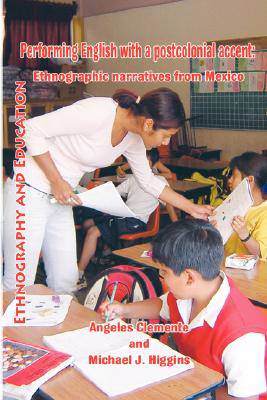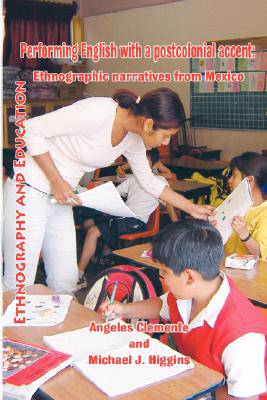
- Afhalen na 1 uur in een winkel met voorraad
- Gratis thuislevering in België vanaf € 30
- Ruim aanbod met 7 miljoen producten
- Afhalen na 1 uur in een winkel met voorraad
- Gratis thuislevering in België vanaf € 30
- Ruim aanbod met 7 miljoen producten
Zoeken
Performing English with a Postcolonial Accent
Ethnographic Narratives from Mexico
A Clemente, M J Higgins
€ 36,95
+ 73 punten
Omschrijving
'The postcolonial condition represents the political, social and cultural realities of what constitutes the everyday lives of the actors entangled in the "whirlwind of globalisation". How they learn, appropriate, modify, and redefine their use of English as a series of multilingual social and cultural performances' is what is meant by a postcolonial accent. With the dominant role that English plays in the globalised political economy of the contemporary postcolonial world, students and educators from all over the world are confronting the questions: who controls how they perform languages; when they can play with these languages; and how they can locate themselves in the social and cultural dynamics and issues that compound their everyday lives? Taking a critical perspective, and using postcolonial paradigms, the authors draw on the experiences of students in Oaxaca, Mexico to examine the issues raised by postcolonial English. This book is intended for scholars and students in applied linguistics, cultural anthropology, SLA, and cultural studies; for those working in English as an additional language and Latin American community studies; and for non-native teachers of English and language teachers interested in performativity and postcolonial discourses.
Specificaties
Betrokkenen
- Auteur(s):
- Uitgeverij:
Inhoud
- Aantal bladzijden:
- 240
- Taal:
- Engels
- Reeks:
Eigenschappen
- Productcode (EAN):
- 9781872767871
- Verschijningsdatum:
- 28/03/2008
- Uitvoering:
- Paperback
- Formaat:
- Trade paperback (VS)
- Afmetingen:
- 154 mm x 230 mm
- Gewicht:
- 326 g

Alleen bij Standaard Boekhandel
+ 73 punten op je klantenkaart van Standaard Boekhandel
Beoordelingen
We publiceren alleen reviews die voldoen aan de voorwaarden voor reviews. Bekijk onze voorwaarden voor reviews.











